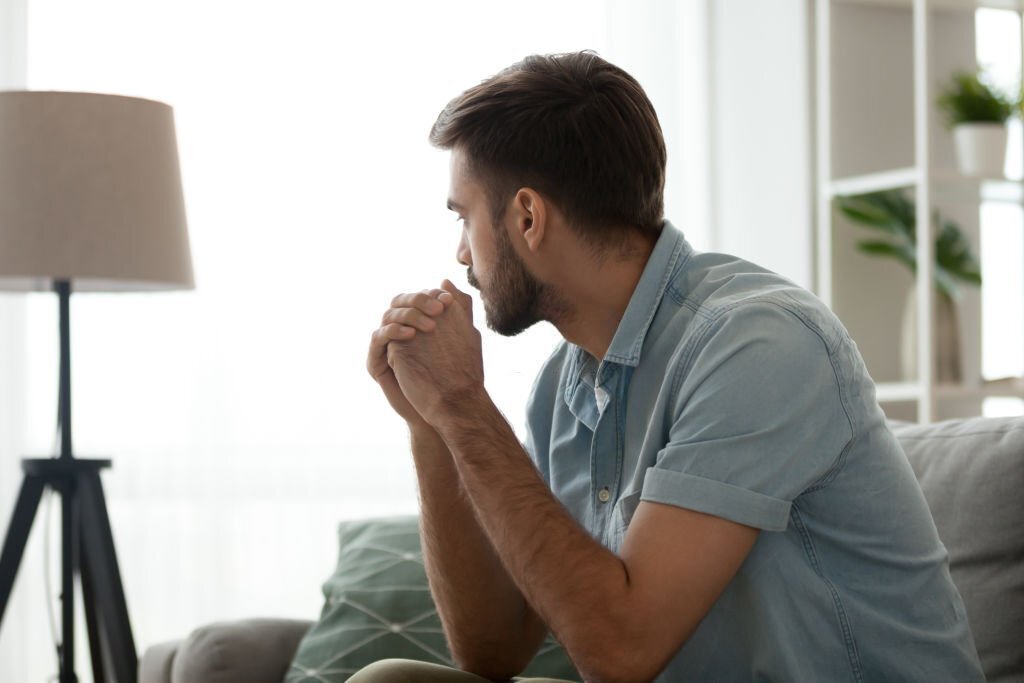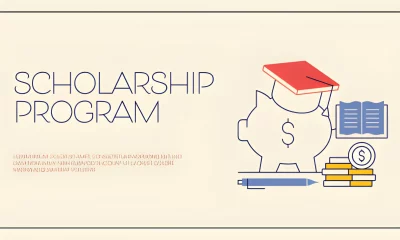Relationship Rescue
20 Signs You’re Addicted to Relationships
Relationship addiction, also known as love addiction or codependency, is a behavioral disorder in which individuals become excessively dependent on their romantic partners or the idea of being in a relationship.
It is characterized by a compulsive need for validation, attention, and affection from others, often leading to unhealthy patterns of behavior such as staying in toxic relationships, sacrificing one’s own needs for the sake of the relationship, and experiencing intense anxiety or depression when not in a relationship.
Human beings as social creatures will naturally crave connection with others, but some individuals may develop an intense need for constant validation and attention from others, often at the cost of their own well-being.
It is good to note that relationships, whether romantic or platonic, play a significant role in our lives and can bring immense joy and fulfillment.
However, being addicted to relationships can have a negative impact on one’s mental health, self-esteem, and ability to form healthy connections with others.
This topic is complex, nuanced, and requires careful exploration and introspection, as well as professional guidance, to help individuals overcome their addiction and achieve a fulfilling and balanced life.
Exploring this can help shed light on the importance of balancing our need for connection with healthy boundaries and self-care.
MUST SEE: 10 Reasons Why You’re Not Getting The Love You Deserve
What Causes an Addiction to Relationships?
The reasons for developing an addiction to relationships are multifaceted and may involve a combination of biological, psychological, and social factors.
Childhood experiences such as neglect, abuse, or inconsistent parenting can lead to attachment issues and a deep-seated fear of abandonment or rejection, which in turn can manifest as a dependency on romantic relationships.
Low self-esteem and a fear of being alone can also contribute to this pattern of behavior.
Additionally, societal norms that romanticize the idea of being in a relationship and place a premium on external validation can also contribute to relationship addiction.
Over time, relationship addiction can lead to negative consequences, such as a lack of personal growth and the inability to maintain healthy boundaries.
Understanding the root causes of relationship addiction is crucial in order to break the cycle and establish healthier relationship dynamics.
Reasons People Develop Relationship Addiction
The human need for connection and intimacy is a fundamental aspect of our lives.
However, there are some individuals whose intense need for constant validation, attention, and companionship from others, often lead to them staying in toxic relationships and situations that are damaging to their general well-being.
The reasons people may develop relationship addiction can be complex and varied.
One reason could be a deep-seated fear of abandonment or loneliness, which leads them to seek constant companionship and validation from their partners.
Another reason may be a lack of fulfillment in other areas of their lives, causing them to rely solely on their relationships for happiness and purpose.
Childhood trauma, unresolved emotional traumas, or past relationship issues may also contribute to relationship addiction, as individuals may seek out partners who resemble previous partners or family members as a way of finding familiarity and security.
Understanding the underlying causes of relationship addiction is crucial in order to break the cycle and establish healthier relationship dynamics.
The Signs of Relationship Addiction
There are several signs that may indicate a person has relationship addiction.
One of the main signs is a compulsive need for validation, attention, and affection from their partner.
They may also struggle with setting healthy boundaries in their relationships, and have difficulty saying no to their partner’s requests or demands.
Individuals addicted to relationships may also prioritize their partner’s needs over their own, and may experience intense feelings of anxiety or depression when they are not in a relationship.
Other signs may include a pattern of staying in toxic relationships, a fear of being alone, and an inability to function independently without their partner.
In this article are 20 signs of relationship addiction, and recognizing these signs is crucial in order to seek professional help and break the cycle of addiction.
1. Your relationship overpowers your pain
To alleviate discomfort, we resort to various means.
For some, it’s relationships, drugs, or alcohol.
This connection may become your priority if you’ve experienced trauma, even if you’ve tried to push it to the back of your mind.
Relationships can hurt and help you because they are diversionary strategies designed to keep you from focusing on the real source of your anguish.
2. Your relationship defines you
At first look, most people would agree that their identities are not based on their relationships.
Take a closer look though. Do you feel like everything is collapsing when you and your partner argue?
Do you feel completely empty within after a failed relationship?
When a relationship ends, do you also end? If you replied “yes” or “maybe” to any of these questions, you may be addicted to romantic relationships.
3. Your partner make you nervous
If you’re in a relationship that’s continually making you anxious, it’s not doing you any favors.
Your life is being dominated by your fear of offending others or making a mistake, if you have to tread carefully so as not to ruffle any feathers.
4. You think you won’t survive without a relationship
If you have an unreasonable and extreme dread of a relationship ending, you may be addicted to being in one.
You may be miserable and wish to leave, but you may be too afraid to really do so.
Because of your dependency on drugs or alcohol, you may believe that being in a relationship is essential to your happiness.
After you overcome your addiction, you’ll value your own happiness above anything else.
5. You don’t trust your partner
If you don’t trust your spouse but you continue in the relationship regardless, that’s a sign of addiction.
This terrible relationship is built on shaky ground due to the absence of trust between the two parties.
If you don’t trust your partner, you’ll spend too much time worrying about what they’re thinking and doing.
And yet, you rate this higher than being happily single.
6. Your relationship is on-again, off-again
Doing this once or twice isn’t necessarily indicative of a relationship addiction, but if it becomes a regular occurrence, it’s because of something.
When a couple breaks up, there’s typically a good reason for it.
It’s an addiction when you keep returning to the pattern of missing each other and reconciling despite the reasons you broke up in the first place.
You’re hooked on the emotional roller coaster that is a breakup and the subsequent reunion.
7. You don’t trust yourself
Do you have faith in your own discretion?
If not, it’s likely that you’re staying in an unhealthy relationship because you feel you have no choice.
8. You choose your partner over everything and everyone else
How often do you change your schedule to be with your partner instead of your friends and family?
Do you always prioritize their needs before your own? What sort of things do you do to take care of yourself?
We all want our partners to be happy, but a relationship addict will put their partners happiness before their very own.
9. You always forgive your partner for anything
Some wrongdoing can be overlooked, but not all wrongdoing should.
Respect is something you should demand in a relationship.
But if you’re hooked to relationships and continue to forgive your spouse even when they treat you poorly because you’re afraid of being alone, you have a problem.
10. Things are more bad than good
You have a serious problem if this is the case. It’s not often that we become dependent on a happy, stable relationship.
There must be something keeping you together if the bad periods in your relationship outnumber the good ones.
11. You always make excuses for your partner
When you excuse your partner’s wrongdoing, you’re not just being tolerant.
A healthy relationship does not include one person justifying verbal violence at dinner by claiming they had a bad day at work.
12. You constantly crave your partners attention
You’re hooked to your relationship if you need your partner’s approval and affection as you need sugar or caffeine.
You need not wonder why you feel so deprived of your partner’s love: it is because they are not generous with it.
You wouldn’t need to seek your partner’s affection if you were constantly showered with it.
You’re stuck in an unhealthy partnership, yet your addiction is holding you there.
13. You’re always sick without your partner
Signs of relationship addiction include feeling physically ill while separated from a significant other.
You will experience physical and mental withdrawals from your relationship, much like you would from narcotics or alcohol.
14. You’re afraid to argue with your partner
A person who is addicted to relationships will typically do whatever it takes to keep the connection alive. Despite your partner’s laziness, you’d do anything to keep them by your side.
To avoid disrupting the calm, you will always be nice and polite.
15. You don’t feel confident
Addiction in relationships corrodes one’s sense of worth.
You might have entered the relationship with a healthy sense of self-worth, but you can quickly lose it if you come to rely too heavily on your partner.
16. You feel lonely
If you’re feeling lonely in a relationship but choose to stay in it anyhow, that’s a sign of addiction, not just loneliness.
17. You are addicted to other things or substances
Signs of other addictions may present themselves when someone is hooked to relationships.
Addiction to substances or behaviors like binge eating or drinking can be a coping mechanism for those who are addicted in their romantic relationships.
18. You hide your relationship from family and friends
There’s more going on than simple embarrassment or shame when one chooses to keep details of their relationship or partner hidden from those closest to them.
You don’t want them to put pressure on you to give up. In other words, you intend to remain there.
19. You have lost interest in other aspects of your life
You’ll feel completely overloaded trying to deal with a relationship addiction.
It will take time away from important things like friends, family, and interests.
You can’t let go of your relationships if they have caused you to lose interest in your hobbies.
20. You want to leave, but are unable to do so
A person who is addicted to a relationship will experience the same feelings as an alcoholic who wants to quit drinking but can’t.
You feel miserable.
The way you feel about your relationships makes you unhappy, yet at the same time, you crave variety.
You want to leave, but you want to feel good one more time before you go.
SEE ALSO: 32 Tips For Building A Healthy Relationship
Other Signs of Relationship Addiction
Other major signs of relationship addiction include;
- Using sex to fix the relationship.
- Using the relationship for well-being or identity.
- Justifying physical abuse.
- Committing too quickly.
- Being unable to see the partner’s flaws.
- Allowing the partner come back after misconduct.
- Feeling exhausted by frequent highs and lows.
- Changing one’s self to be in the relationship.
- Changing one’s habits or behaviors to fit their partner.
- Feelings of anxiety or depression.
- Feeling tired, confused, irritable, or insecure.
- Experiencing relationship obsessiveness.
- Defensive about everything.
- Feeling responsible for all problems.
- Anger over unmet needs.
- Making poor decisions because of emotions you have towards your partner or love interest.
How to Prevent an Addiction to Relationships
Preventing relationship addiction involves taking proactive steps to maintain emotional balance and cultivate healthy relationships.
This can include setting clear boundaries with romantic partners, prioritizing self-care and self-awareness, and seeking support from friends, family, or professionals when needed.
It is a crucial step in maintaining healthy relationships and promoting personal well-being.
By being mindful of our emotional needs and vulnerabilities, we can avoid becoming overly dependent on our partners for validation and fulfillment, and form relationships that are based on mutual respect, trust, and shared values.
In essence, prevention is about fostering a strong sense of self and cultivating healthy relationship habits that can help us build fulfilling, sustainable relationships over the long term.
How to Cope With an Addiction to Relationships
Coping with relationship addiction can be a difficult and challenging journey, but it is important to remember that recovery is possible with the right support and resources.
Recognize the signs of relationship addiction, seek professional help, develop a support network, commit to self-awareness and self-care, because it is important to prioritize self-care, establish healthy boundaries, and develop healthy coping mechanisms.
These are crucial steps needed in healing and finding balance in one’s life.
It will take time and effort, but with commitment and perseverance, and these tools and techniques, individuals struggling with relationship addiction can overcome their challenges and begin to manage their symptoms, live a more fulfilling life and build fulfilling, satisfying relationships with themselves and others.
YOU MAY ALSO LIKE: 12 Ways To Tell You Are Falling Out Of Love
Treatments for Relationship Addiction
There are presently no standard drugs used to treat love addiction because it is not considered a diagnosable mental health disorder.
However, treatments for relationship addiction typically involves therapy, support groups, and lifestyle changes aimed at helping individuals understand and manage their addictive behaviors.
Therapy can help individuals understand the root causes of their addictive behaviors and develop healthier coping strategies.
Support groups provide a safe and supportive environment for individuals to share their experiences and connect with others going through similar struggles.
Lifestyle changes such as practicing self-care, setting healthy boundaries, and engaging in healthy activities can also be helpful in managing relationship addiction.
With the right treatment and support and by committing to the recovery process, individuals with relationship addiction can find the strength and tools they need to break free from destructive patterns and build healthy, fulfilling relationships and live a happier, more satisfying life.
Here we will explore some of the most effective treatments for relationship addiction and how they can help individuals overcome this challenging condition.
1. Acknowledge the Addiction
When it comes to the mind, denial is the biggest problem for addicts. That is why recognizing the pattern is the first step towards changing it.
- Accept that your relationship is unhealthy
- Acknowledge that getting back into the relationship will not solve your problems
- Stop convincing yourself it will be “different” next time
- Accept that the relationship is over
- Stop believing the avoidant partner can be someone different
- Let go of the fantasy you created
2. Abstain from New Relationships for a Period
If you’re serious about getting better, you shouldn’t rush into a new romantic connection right after you start therapy.
You must first focus on becoming well. Rather than looking outside yourself for happiness, focus on what makes you happy.
Having a partner doesn’t make you whole, though. That means security, and strength are all within your grasp with time and introspection.
3. Learn to be alone and reflect
It’s important to take some time for yourself.
Before jumping into a new relationship, it’s important to dig into what led you down the path of addiction and what pushes you to relapse.
4. Look out for recurring patterns
A person who is addicted to love tends to behave in the same way regardless of who they’re seeing.
Go back on your romantic history and see if you can spot any patterns.
5. Invest in yourself
Those who suffer from love addiction tend to put everyone else’s needs before their own.
understand that spending effort on improving oneself is an excellent strategy for developing an affection for oneself.
6. Rely on friends and family
Telling those who care about you about your battle with this disorder can be a comfort.
7. Get Professional Support
Fighting a love addiction on your own might be difficult. The best course of action is to consult an expert.
To further understand your love addiction, your triggers, and how to manage negative emotions and actions, you should get professional therapy.
8. Join a support group
Knowing that there are others out there who understand what you’re going through and who care can be one of the most relieving aspects of dealing with any kind of illness. Meeting them is one benefit of joining a support group. In addition, you can interact with people who have successfully cured their disorder.
How to Overcome an Addiction to Relationships
Overcoming relationship addiction involves breaking free from the cycle of dependency and developing a sense of self-worth and autonomy.
It requires a willingness to acknowledge the problem, identify the root causes, and develop a plan to break free from the cycle of dependency.
This involves acknowledging the problem, seeking support from professionals or support groups, and developing healthy coping mechanisms to manage difficult emotions.
The process can be challenging and emotionally difficult, as it involves letting go of deeply ingrained patterns of thought and behavior, but it is a critical step towards achieving greater emotional well-being.
Ultimately, the goal is to cultivate a stronger sense of self, and form healthy and balanced relationships that are based on mutual respect and healthy boundaries.
Conclusion
In conclusion, while relationships can bring immense joy and fulfillment, it is important to recognize the signs of relationship addiction and seek professional help if necessary.
Developing a dependency on relationships can have a negative impact on one’s mental health, self-esteem, and ability to form healthy connections with others.
By understanding the underlying causes of relationship addiction and working to establish healthy relationship dynamics, individuals can break the cycle of addiction and achieve a fulfilling and balanced life.
It is important to remember that seeking help is not a sign of weakness, but rather a courageous step towards personal growth and well-being.
With the right support and resources, individuals can overcome relationship addiction and cultivate meaningful connections that enrich their lives.
Click the button below to Gain Access to our Members’ Exclusive Group, before it fills up again.
Gain Access Now!
Key Takeaway
- Relationship addiction can have a profound impact on one’s mental health and overall well-being.
- The reasons for developing an addiction to relationships involve a combination of biological, psychological, and social factors.
- Individuals addicted to relationships also tend to prioritize their partner’s needs over their own, and may experience intense feelings of anxiety or depression when they are not in a relationship.
- Preventing relationship addiction involves taking proactive steps to maintain emotional balance and cultivate healthy relationships.
- Coping with relationship addiction is difficult, recovery is possible with the right support and resources.
- The treatments for relationship addiction are therapy, support groups, and lifestyle changes.
- The goal of overcoming relationship addiction is to develop a strong sense of oneself, and form healthy and balanced relationships with mutual respect and healthy boundaries.
SEE WHAT OTHERS ARE READING:
- 16 Major Signs Of A Toxic Girlfriend
- 10 Solid Reasons You Should STAY AWAY From Your Ex
- 10 Signs Your Relationship Is Slowly Dying



















